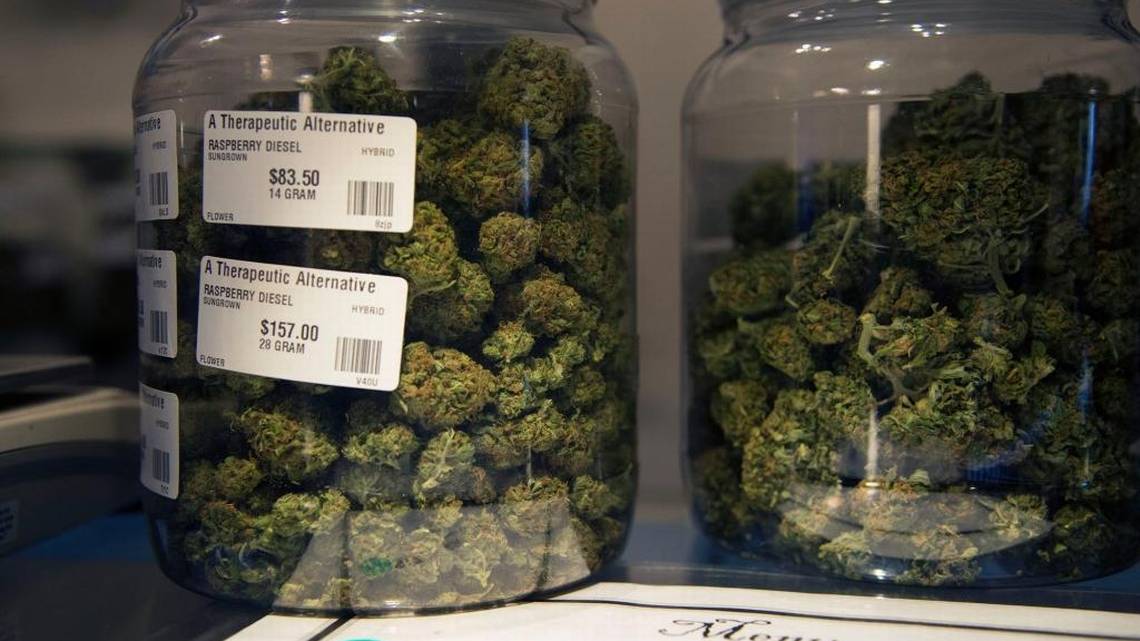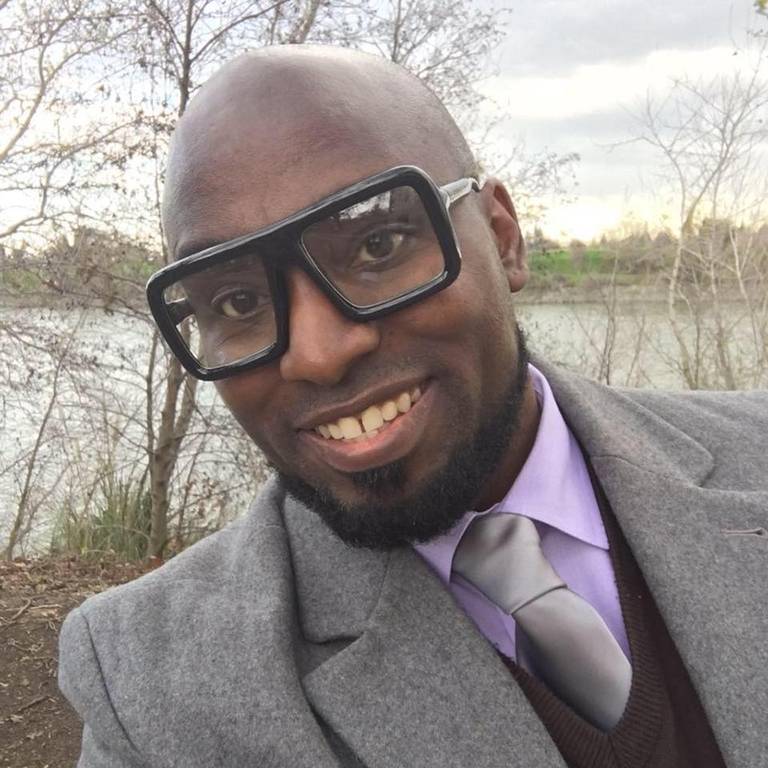Want equity, Sacramento? Invest your cannabis taxes in Stephon Clark’s neighborhood
BY MALAKI SEKU AMEN SPECIAL TO THE SACRAMENTO BEE
APRIL 24, 2018 09:00 AM, UPDATED APRIL 26, 2018 03:43 PM
APRIL 24, 2018 09:00 AM, UPDATED APRIL 26, 2018 03:43 PM
Senseless tragedy has a way of shining a light on what needs to change, whether that was the murder of Emmett Till, the Parkland massacre or the unwarranted death of Stephon Clark.
What needs to change in Sacramento is disinvestment in black and brown communities. Over the last several years, we’ve witnessed a massive effort to create amenities for the wealthy, including millions of public dollars invested in a basketball arena and the building of upscale housing in downtown and midtown.
Sacramento has treated marijuana as if it were something neutral, without a past, like a new granola bar boom. Marijuana is not granola bars; it has a tragic, racialized history in our community.
The reverse has been true in the Meadowview neighborhood of Stephon Clark, and in Del Paso Heights, the same neighborhoods I lived in as a child and a teenager.
For decades the Sacramento Police Department targeted young people and adults in these neighborhoods and sent thousands of people to prison for minor offenses such as marijuana possession. Last year the department shared data showing that from 2012 to 2016, African Americans accounted for 43 percent of marijuana arrests while making up only 15 percent of the population. Drug war policies since the 1930s Reefer Madness era have caused severe damage to communities of color, right up to the present day.
As a result of these policies, parents went to prison. They suffered joblessness and were blocked from accessing affordable housing and education benefits. In many cases, traumatized children went into the foster care system. The actions of our city drove up poverty rates in our black and brown neighborhoods, resulting in economic blight.
Now the City Council is aggressively promoting a legal marijuana industry that is enriching white entrepreneurs and investors. Over the past two years, they have treated marijuana as if it were something neutral, without a past, like a new granola bar boom. Marijuana is not granola bars; it has a tragic, racialized history in our community.
To repair some of the damage caused by criminalization, the city should set aside the millions of dollars it expects to bring in over the coming years from marijuana taxes and invest that money in children and youth services, and in economic development in those neighborhoods most impacted by the decades-long war on drugs.
It should create a public planning process on how to use those revenues to build economic health and well being in Stephon Clark’s neighborhood and in neighborhoods like it. It should strengthen and accelerate the economic equity program for the cannabis industry it approved last November, which is being implemented at a snail’s pace.
As long as marijuana tax revenues flow to the city’s general fund, we know the dollars will go to fund our police department. Using marijuana tax revenues to expand our police force is simply wrong.
We don’t have to raise taxes to invest in our city’s impoverished black and brown communities. We already have the dollars in hand. It’s time for the City Council to fix a huge wrong, and do what’s right.
Malaki Seku Amen is the CEO of the California Urban Partnership, an organization dedicated to building economic security for the health and well-being of black and brown communities. Reach him at [email protected].
What needs to change in Sacramento is disinvestment in black and brown communities. Over the last several years, we’ve witnessed a massive effort to create amenities for the wealthy, including millions of public dollars invested in a basketball arena and the building of upscale housing in downtown and midtown.
Sacramento has treated marijuana as if it were something neutral, without a past, like a new granola bar boom. Marijuana is not granola bars; it has a tragic, racialized history in our community.
The reverse has been true in the Meadowview neighborhood of Stephon Clark, and in Del Paso Heights, the same neighborhoods I lived in as a child and a teenager.
For decades the Sacramento Police Department targeted young people and adults in these neighborhoods and sent thousands of people to prison for minor offenses such as marijuana possession. Last year the department shared data showing that from 2012 to 2016, African Americans accounted for 43 percent of marijuana arrests while making up only 15 percent of the population. Drug war policies since the 1930s Reefer Madness era have caused severe damage to communities of color, right up to the present day.
As a result of these policies, parents went to prison. They suffered joblessness and were blocked from accessing affordable housing and education benefits. In many cases, traumatized children went into the foster care system. The actions of our city drove up poverty rates in our black and brown neighborhoods, resulting in economic blight.
Now the City Council is aggressively promoting a legal marijuana industry that is enriching white entrepreneurs and investors. Over the past two years, they have treated marijuana as if it were something neutral, without a past, like a new granola bar boom. Marijuana is not granola bars; it has a tragic, racialized history in our community.
To repair some of the damage caused by criminalization, the city should set aside the millions of dollars it expects to bring in over the coming years from marijuana taxes and invest that money in children and youth services, and in economic development in those neighborhoods most impacted by the decades-long war on drugs.
It should create a public planning process on how to use those revenues to build economic health and well being in Stephon Clark’s neighborhood and in neighborhoods like it. It should strengthen and accelerate the economic equity program for the cannabis industry it approved last November, which is being implemented at a snail’s pace.
As long as marijuana tax revenues flow to the city’s general fund, we know the dollars will go to fund our police department. Using marijuana tax revenues to expand our police force is simply wrong.
We don’t have to raise taxes to invest in our city’s impoverished black and brown communities. We already have the dollars in hand. It’s time for the City Council to fix a huge wrong, and do what’s right.
Malaki Seku Amen is the CEO of the California Urban Partnership, an organization dedicated to building economic security for the health and well-being of black and brown communities. Reach him at [email protected].



